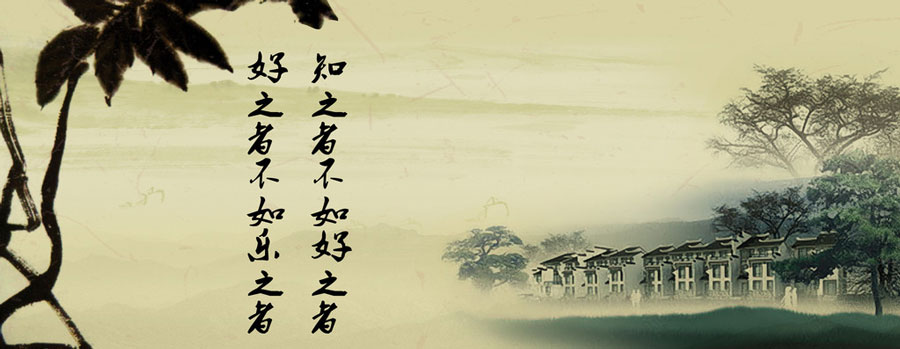Last week we finished our discussion on study. This week we start our discussion on practice. Practice is the application of knowledge in life. in Chinese practice is (修行), which includes study and application. Alongside with our ongoing study, let see what Confucius and his students had to say on how to practice, and how to integrate teachings into their lives.
6.1 Three levels of cultivation: knowing, loving, enjoying
子曰、知之者、不如好之者、好之者、不如樂之者。
The Master said, ‘They who know the truth are not equal to those who love it, and they who love it are not equal to those who delight in it.’
* * *
This chapter presents the 3 major stages of practice. One
1) knows about the truth (intellectual)
2) loves it (feeling)
3) delights in it (awareness)
The first stage one find interest in exploring the truth, and seek to know about it thoroughly. In second stage after understanding, one sees its value, feels the effect, and loves the truth. Finally, with practice and dedication, one realizes the wholeness of the practice, fully integrates in ones life, and therefore delights in it.
These 3 stages of practice could be applied to any topic of interest. For example in meditation, beginning students seek to understand the what-about and how-to of meditation. Intermediate students see and feel the value and love it. Advanced students is in meditative state all the time and is therefore at one with the internal joy of it.
Which stage of practice are you in?上周我们完成了“学”的讨论。这个星期,我们开始讨论“行”。修行包括修和行俩部分。除了我们正在进行的学习(修)外,让我们看看孔子和他的学生们怎样去“行”,如何将知识融合到他们生活之中。
6.1 修行的三个层次:知,好,乐
子曰,知之者,不如好之者,好之者,不如乐之者。
***
本章介绍了修行的3个主要阶段:
1)知道(思想上)
2)喜爱 (感受上)
3)喜悦 (知觉上)
第一阶段我们学习的题目产生兴趣,开始探索,寻求思想上的了解。在第二阶段,有了了解后,我们看到并感觉到它的价值,并对此表示赞赏,产生感受上的喜爱。最后,通过实验和实践,能将要学习的融入到生活之中,达到知觉上的喜悦。
这3个阶段,能适用于任何的学习题目之中。例如,在打坐的学习中,初级的同学寻求了解打坐的目的和方法。中级的同学会看到和感觉到它的价值,并开始喜爱打坐。高级同学会时时都在打坐的状态之中,知觉上能体会到喜悦。
你现时的学习,是在哪一个阶段呢?


Leave a Reply